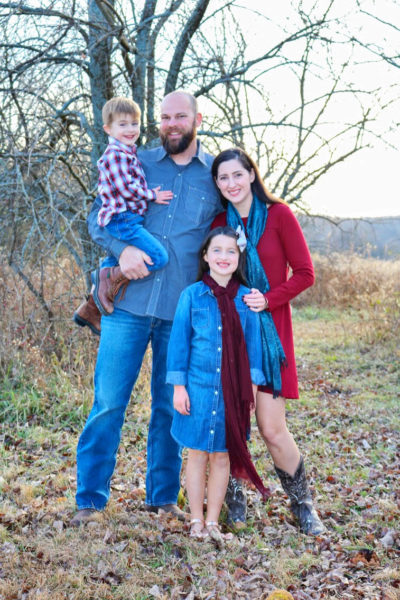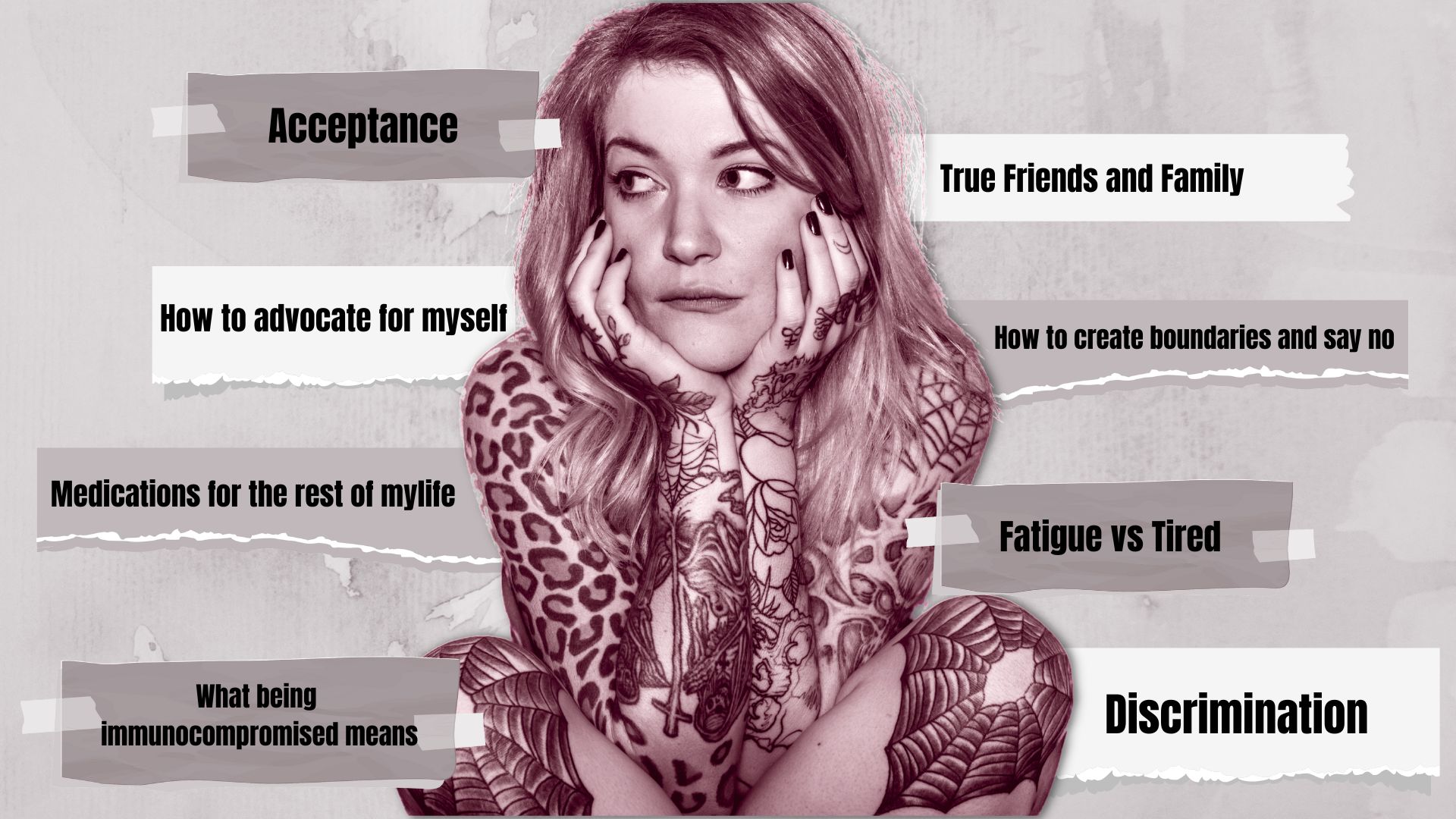Learn more about our FREE COVID-19 Patient Support Program for chronic illness patients and their loved ones.
This has been reviewed and updated as of May 5, 2020.
“I live in a small town of 1,000 people. My daughter’s graduating class will have about 18 kids in it. And I never go anywhere because I’m in pain from my ankylosing spondylitis,” says Jessica Schantz. “I’m the last person I thought would test positive for COVID-19. But here I am.”
Jessica, a married 33-year-old mom of two children, a 7-year-old daughter and a 4-year-old son, lives in a small town in Missouri very close to the Kansas border. Her family lives on a small farm with some dogs, two donkeys, and almost 30 chickens whose eggs they sell locally. (Well, not right now.)
She got the news that she had coronavirus Monday March 16 and thankfully is doing well so far. But her road to getting diagnosed was not a straightforward or easy one.
A Long List of High-Risk Conditions
Jessica began getting concerned about the imminent threat of COVID-19 when it first started making headlines of arriving in the U.S. She’s had asthma for years and just last year was diagnosed with ankylosing spondylitis (AS), a type of inflammatory arthritis that causes pain and stiffness in the back and hips as well as other joints.
To mange her AS, Jessica takes an injectable biologic medication can suppress her immune system. Because of her health issues, Jessica says she is more vulnerable to many kinds of infections. In fact, Jessica had pneumonia twice in the last year.
So when she first started developing a hoarse voice, cough, and chest pain last week, laryngitis and pneumonia were on her mind — not coronavirus. What’s more, there were no known case in her town or surrounding county. The closest known case, she says, was like three hours away.
A Progression of Symptoms
The hoarseness set in on Wednesday, March 11. “I thought I had laryngitis because I completely lost my voice,” Jessica says. That lasted for about two days. Friday, March 13 brought with it a cough and chest pain.
“It was a sharp stabbing pain,” she says. “It was hard to laugh and play with my kids. If I was lying down it felt OK but if I had to do stuff with the kids it felt like I had just run up a flight of stairs.” It felt similar to pneumonia pain she’d recently experienced after starting her biologic medication.
Between Friday night and Saturday morning her symptoms changed again. She spiked a slight fever overnight. By the time she woke up Saturday, she felt like she had the flu.
“I had a horrible headache — that was the worst part,” she says. “I felt like I couldn’t think straight. I was coughing up a thick mucus. My resting heart rate is normally 65 and now it was 115/120.”
At this point, though, given the lack of any known cases nearby, Jessica thought it was pneumonia again and decided to go to urgent care that morning to get it checked out.
‘It’s Probably Asthma’
At urgent care, rapid strep and flu tests both came back negative. As the provider was saying to Jessica that it was probably just related to her asthma, she piped up. “Is there any way this could be COVID-19?” she asked. “The provider said, “Let’s do the checklist’ and she started asking me questions about my symptoms. I was shocked that she didn’t bring it up earlier, though.”
It turned out that her symptoms were suggestive of COVID-19. But it would take five hours of waiting alone in that exam room to get tested. “They had to wait to hear back from public health officials,” Jessica says. “There was only one doctor on call for the entire state of Kansas approving people to be tested.”
After they swabbed her, Jessica says they told her they would overnight it to the health department for results and “gave me strict rules not to leave my house.”
‘They Called — and I Almost Passed Out’
The call came two days later on Monday, March 16. “‘I’m sorry to tell you that your results came back positive,’” Jessica recalls they told her. “I almost passed out. I barely go anywhere because of my AS.”
Her immediate thoughts turned to her immunocompromised health status.
“I emailed my rheumatologist for advice but they’re in a panic because I was there for a check-up early last week,” Jessica says. “They haven’t given me any guidance about what to do.” She stopped her weekly biologic injection, but feels unsettled about the lack of guidance.
Then Jessica called her primary care doctor’s office to see if she could get a chest X-ray, which she got during both her recent bouts of pneumonia. They said no. “‘If you’re able to breathe and your asthma medication is keeping things under control, you’re fine,’ they told me. ‘Expect to have shortness of breath and wait it out,’” Jessica says they told her, adding they that they said, “‘When your asthma medication stops working, then go to the hospital.’”
“But isn’t that too late?” Jessica wonders.
So, for now, she and her family are riding it out under quarantine. Her family members are starting to undergo testing as they exhibit symptoms.
As for other patients who may be in a similar situation, Jessica says: “Be your own advocate and make sure you’re being heard. I was almost passed off as, “It’s just your asthma.’”
“We just have to fight, that’s what we do,” she says. “We have to come together and lift each other up.”
For people who are immunocompromised and terrified of developing COVID-19 symptoms, listen to these inspiring words from Jessica: “You can do this. I’m doing it. Don’t live in fear.”
Update: We recently checked in with Jessica and, thankfully, she shared that she has recovered fully from COVID-19. She says she recently took an antibody test. “I hope I am protected for a while,” she says.
Get Free Coronavirus Support for Chronic Illness Patients
Join the Global Healthy Living Foundation’s free COVID-19 support program for chronic illness patients and their families. We will be providing updated information, community support, and other resources tailored specifically to your health and safety. Join now.






